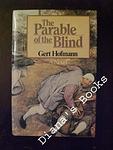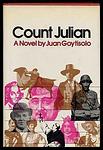The Greatest German, Spanish "Satire, Fiction" Books Since 1970
Click to learn how this list is calculated.
This list represents a comprehensive and trusted collection of the greatest books. Developed through a specialized algorithm, it brings together 305 'best of' book lists to form a definitive guide to the world's most acclaimed books. For those interested in how these books are chosen, additional details can be found on the rankings page.
Genres
Satire is a genre of literature that uses humor, irony, and exaggeration to criticize and ridicule human vices, follies, and shortcomings. It is a form of social commentary that aims to expose the flaws and absurdities of society, politics, and culture. Satirical books often employ sarcasm, wit, and parody to challenge the status quo and provoke thought and reflection in readers. Satire can be both entertaining and thought-provoking, and it has been used throughout history as a powerful tool for social and political critique.
Countries
Date Range
Reading Statistics
Click the button below to see how many of these books you've read!
Download
If you're interested in downloading this list as a CSV file for use in a spreadsheet application, you can easily do so by clicking the button below. Please note that to ensure a manageable file size and faster download, the CSV will include details for only the first 500 books.
Download-
1. Bartleby & Co by Enrique Vila-Matas
"Bartleby & Co" is a metafictional work that explores the theme of "writers of the No," authors who cease to write or never start at all. The narrator, an office worker on sick leave, uses footnotes to a nonexistent text to delve into the stories of these authors, including famous real-life figures. The book serves as a meditation on silence, refusal, and the nature of literature itself.
The 2440th Greatest Book of All Time -
2. Larva: Midsummer Night's Babel by Julián Ríos
"Larva: Midsummer Night's Babel" is a complex and innovative novel that explores the nature of language and the power of words. It's a narrative labyrinth that follows a group of characters through the streets of London on a midsummer night, as they engage in a series of intellectual debates and discussions. The story is filled with puns, word games, and literary references, and is written in a unique style that blends poetry and prose. The novel is also a satire of the literary world, with the characters often critiquing and parodying various literary styles and authors.
The 3032nd Greatest Book of All Time -
3. The Parable of the Blind by Gert Hofmann
"The Parable of the Blind" is a darkly comedic novel that follows six blind men who are hired to pose as models for a famous painter's depiction of a biblical parable. As they journey to the painter's studio, they struggle with their dependence on each other and the outside world, grappling with the limitations and challenges of their blindness. The narrative explores themes of human vulnerability, the nature of perception, and the absurdity of existence.
The 3172nd Greatest Book of All Time -
4. Count Julian by Juan Goytisolo
"Count Julian" is a novel that explores the themes of betrayal, revenge, and cultural identity. The protagonist, an exiled Spaniard, reflects on the history of his homeland, Spain, and its past conquests and losses. He identifies with Count Julian, a historical figure who invited the Moors to invade Spain as an act of revenge against the Visigothic King Roderic. The narrative is a critique of Spanish nationalism and cultural identity, as the protagonist dreams of a new invasion to cleanse Spain of its past and present sins. The book's complex narrative structure, nonlinear timeline, and poetic language make it a challenging but rewarding read.
The 3791st Greatest Book of All Time -
5. La Saga/ Fuga de J. B./ The Saga/ Escape of J.B. by Gonzalo Torrente Ballester
"La Saga/ Fuga de J. B./ The Saga/ Escape of J.B." is a complex narrative that explores the themes of reality and fiction, and their intersection. The story revolves around a mysterious character, J.B., who escapes from a novel into the real world. As he navigates this new realm, the boundaries between the fictional world he came from and the reality he now inhabits become increasingly blurred, leading to a surreal and thought-provoking exploration of the nature of existence.
The 3791st Greatest Book of All Time -
6. A Light Comedy by Eduardo Mendoza
"A Light Comedy" is a humorous tale set in Barcelona during the 1940s, centered around a middle-aged woman who, after losing everything in the Civil War, uses her wits and cunning to survive. She turns her apartment into a boarding house for single ladies, but when the business starts to falter, she decides to concoct a plan to marry a rich American. The novel is filled with a colorful cast of characters, and is a satirical commentary on the social and political climate of the time.
The 4474th Greatest Book of All Time -
7. Die neuen Leiden des jungen W. by Ulrich Plenzdorf
This novel tells the story of a young man from East Germany who rebels against the societal norms and expectations of his time. The protagonist, a skilled worker, flees from his apprenticeship and his home to Berlin, where he isolates himself in a summer house, devoting his time to his passions of reading and listening to Western music. Using the narrative style of a psychological confession, the book explores themes of youthful rebellion, the search for identity, and the conflict between individual desires and societal pressures. The protagonist's tragic end underlines the oppressive nature of the East German regime.
The 7168th Greatest Book of All Time -
8. The Flounder by Günter Grass
The book is a rich tapestry of historical fiction and magical realism, weaving together the lives of a talking fish, a series of women cooks, and the men in their lives over several centuries. It explores themes of feminism, power, and the evolution of culinary arts, with the titular flounder serving as a guide and witness to the unfolding human drama. The narrative spans from the Stone Age to the modern era, reflecting on the changing roles and relationships between men and women, as well as the impact of these dynamics on culture and society. The novel is a blend of myth, satire, and allegory, presenting a unique perspective on the history of humanity through the lens of food and gender politics.
The 7878th Greatest Book of All Time
Reading Statistics
Click the button below to see how many of these books you've read!
Download
If you're interested in downloading this list as a CSV file for use in a spreadsheet application, you can easily do so by clicking the button below. Please note that to ensure a manageable file size and faster download, the CSV will include details for only the first 500 books.
Download






